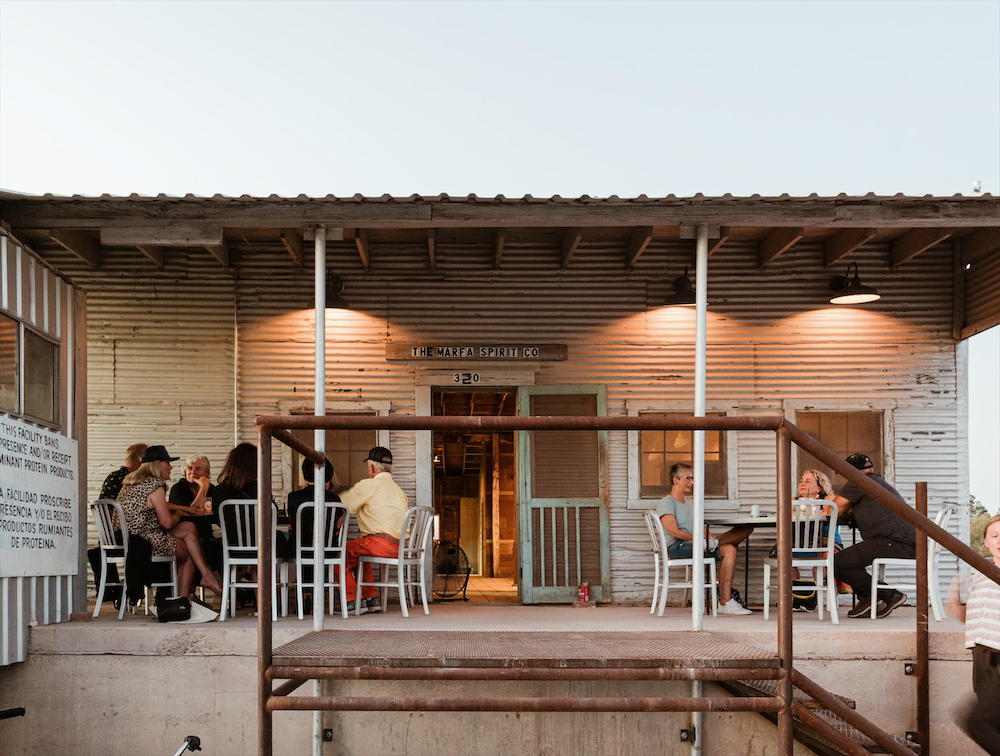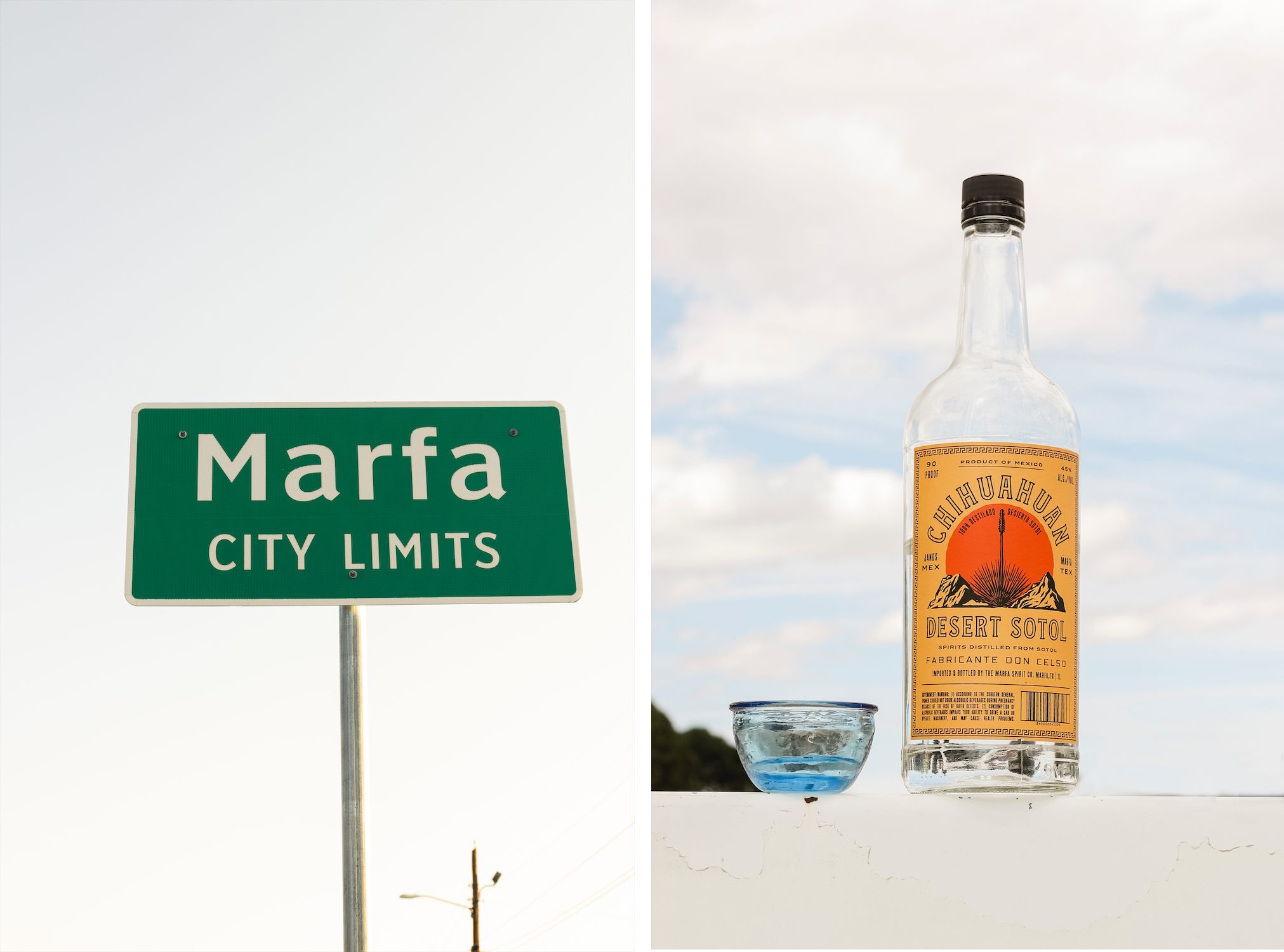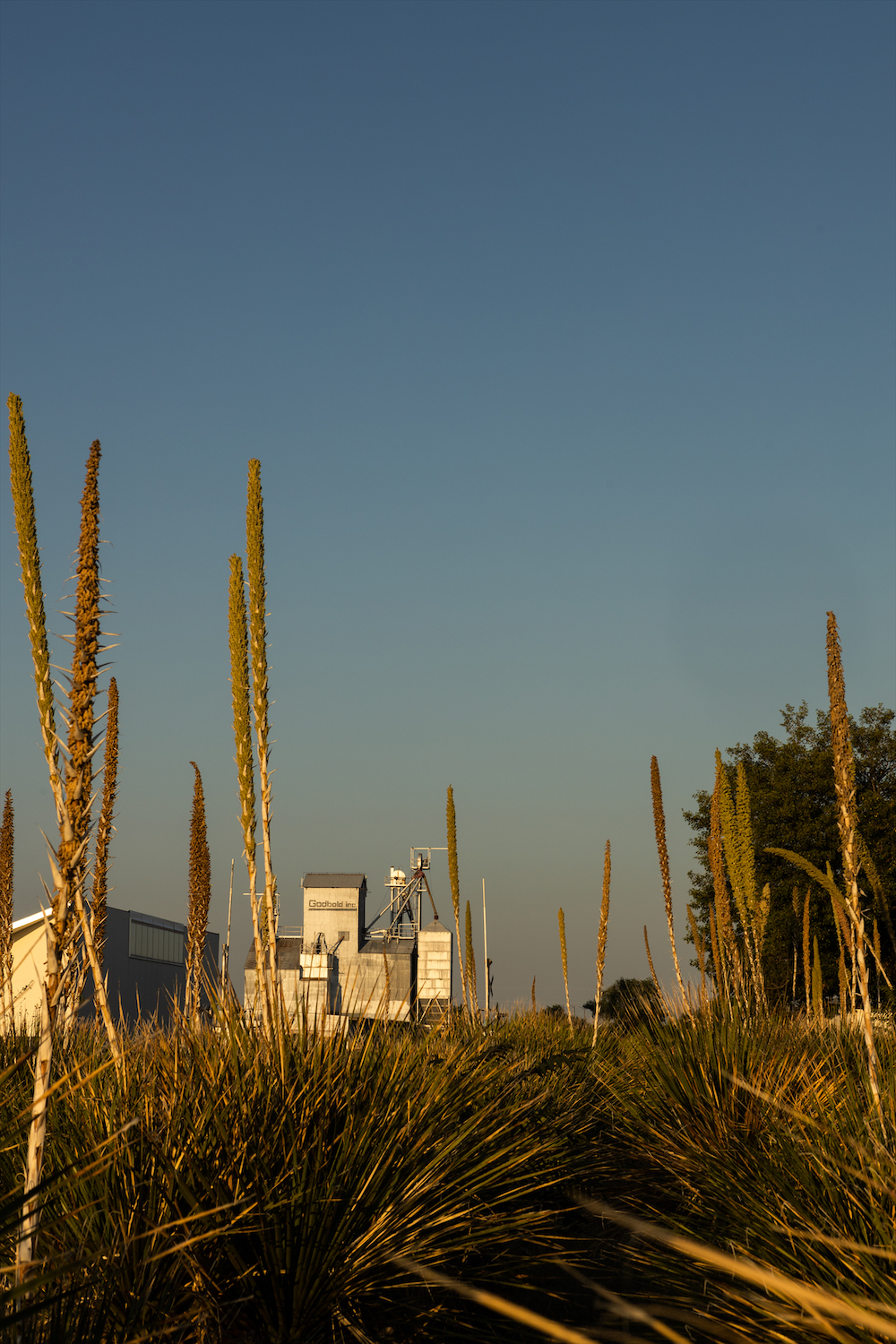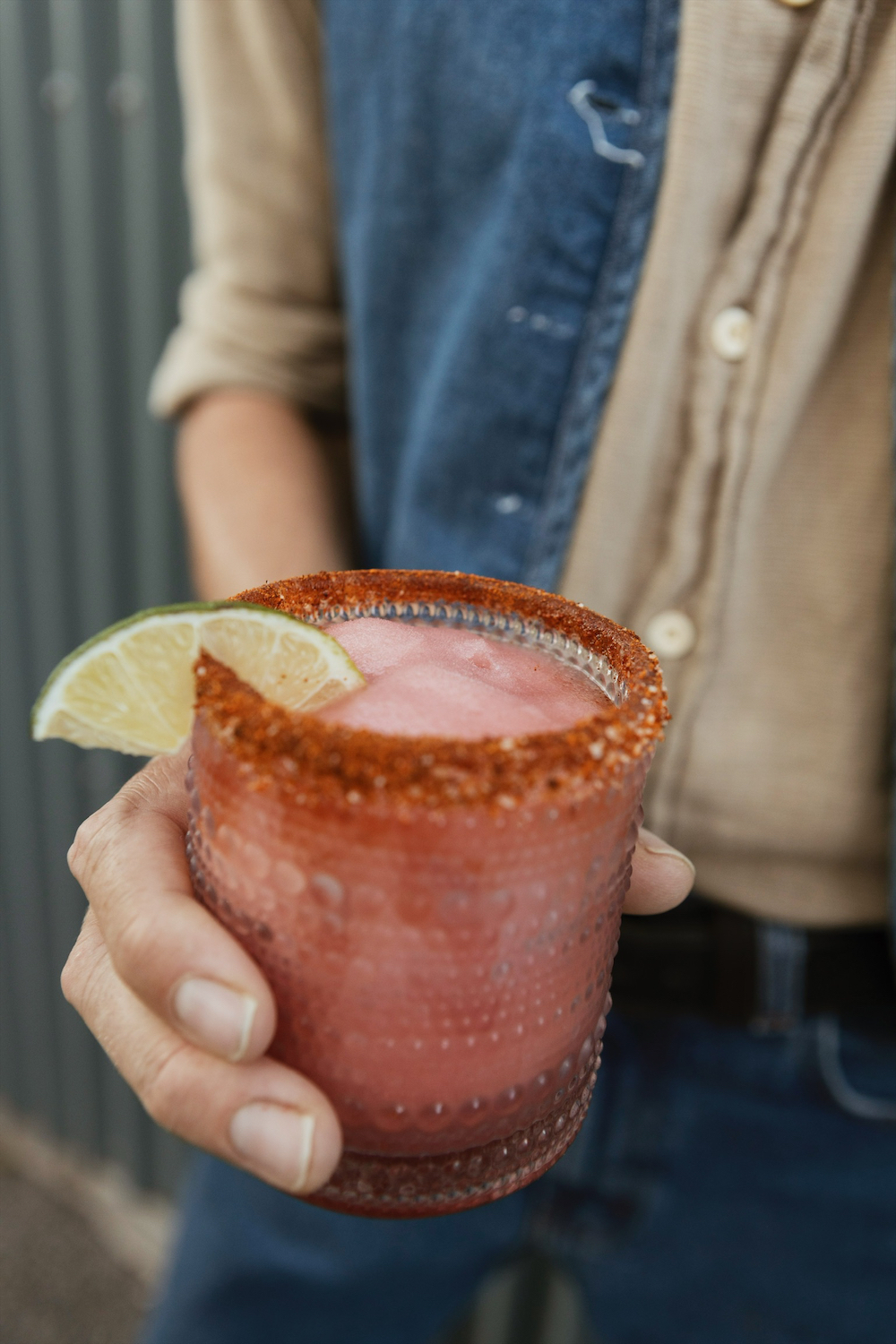The Marfa Spirit Co. is Spreading the Good Word About Mexican Sotol Across Texas
Discover the Organic, Sustainably Made Spirit Every Tequila Lover Should Know
BY Caitlin Clark // 01.14.22
Marfa Spirit Co. co-founders from left to right: Morgan Weber, Seth Siegel Gardner, and Josh Shepard (Photo by Brooke Schwab)
The three founders of The Marfa Spirit Co., the first and only distillery in the Texas art mecca, all discovered sotol in different ways. For Morgan Weber, the introduction to the soulful spirit (most often compared to mezcal) came in 2009 while opening Anvil Bar & Refuge in Houston.
“We were deeply into exploring spirits that were a little off the beaten path at that time,” Weber shares. “While there was not a lot of sotol being imported into the US, it was one of the closest ‘exotic’ spirits being produced not that far away in Northern Mexico. I was intrigued by the unique flavor profile, and how well it played with other classic cocktails when substituted as a base spirit for more well-known things like gin.”
For Seth Siegel-Gardner, owner of the acclaimed (but now shuttered) Pass and Provisions in Houston, educating himself on sotol came naturally to the forward-thinking chef. And though the distillery’s third-cofounder, Josh Shepard, doesn’t come from the food and beverage world, the entrepreneur spent decades visiting Marfa (and even lived there for a stretch), just a short drive from Mexico’s Chihuahua region where the desert spoon shrub used to make the distinct spirit is most prevalent. “It’s hard to escape an introduction and subsequent obsession with sotol,” Shepard shares.
The trio launched The Marfa Spirit Co. in 2021 as an ode to the area, along with their debut product, Chihuahuan Desert Sotol, a partnership with Sotol Don Celso in Janos, Mexico. The Marfa Spirit Co. Tasting Room opened late last year in the city’s historic Godbold building, where they serve up a variety of gin, vodka, and —most notably —sotol cocktails.
The tasting room is a prime addition to the lineup of must-hit spots during Marfa travels, but for Texans who aren’t currently headed out west, the distillery’s flagship product is now available state-wide at Texas liquor chain Spec’s as well local stores like Pogo’s (Dallas), The Austin Shaker, Bar & Garden (Dallas), and Ly’s Liquor (Houston).
To celebrate the Texas launch of Chihuahuan Desert Sotol, PaperCity caught up with the brand’s co-founders to learn more about the rise of the smoky spirit and how they plan to continue harvesting sustainably.

PC: Sotol isn’t a mainstream spirit just yet. Do you see it becoming more popular in Texas and the US?
The Marfa Spirit Co.: It’s definitely not, but over the last handful of years, we’ve seen an explosion of interest, which has naturally followed American’s obsession in other Mexican Spirits like tequila, mezcal, baconora, and raicilla. Curious drinkers seem to naturally gravitate to seeking out new spirits with which they’ve previously been unfamiliar. Based on introducing it to a wide cross-section of people and receiving their feedback, it’s our experience that while completely different than tequila and mezcal, it is well loved.

How would you describe sotol to someone who was brand new to it?
Not many people get the opportunity to spend time around the plant in the field or during harvest like we’ve been able. When you’re in the field harvesting fresh sotol, the aromas are amazing. That same feeling when you go by a field of freshly cut hay or grass—the aroma is in the air. We’ve never quite been around a scenario in which the raw plant smells and even flavors translate to what you taste in the final product that makes it into the bottle. Because of the way it is distilled (at lower proofs than say bourbon or rum), it is absolutely packed with flavors and smells. We like to describe it as crisp and bright, with beautiful earthy and herbaceous undertones that finish with spices like black pepper.

It seems like sotol can be produced more sustainably than agave spirits. Can you discuss your sustainability efforts?
Sustainability is one of the biggest concerns for producers in Texas and Mexico. Sotol was illegal to produce in Mexico until relatively recently as history is concerned, and it gets complicated quickly. The more growth that the sotol category receives in the U.S., the more rigorous and important a conversation around sustainability becomes. We are exploring and implementing several different approaches to what sustainability looks like with sotol. The easiest and most obvious thing sotol producers can do is adopting the idea of harvesting seasonally. During the wet months of the year in the desert (Summer), the yields of the plants plummet. We have seen a massive difference in the yields of plants that we’ve harvested during the summer, versus cooler months—as much as an 8x better yield on the final spirit when the plants are harvested at the appropriate time of the year. So, simply put, if one chooses to harvest plants at the right time, it takes less raw plant material to achieve the same yield, thereby requiring less plants to get to the same end goal.
During harvest, we also don’t go into a field full of sotol and clear-cut it. We only harvest a small percentage of the oldest plants that exist there, and then move on to another area. It then becomes important to have access to a lot of plants, and absolutely avoid harvesting them when they are immature.
In 2022, we will be implementing a theory utilized in the forestry industry as well, by growing plants from seeds in a nursery, and re-planting multiples of young sotol, for every single mature plant we remove. This will be an ongoing trial-and-error process as there has not been a lot of research done in this capacity in the wild and I am sure those methods will evolve over time as we figure out what works and what does not.

What was it important to make your home base in Marfa?
For us, it made sense to be close to the source of the plants. Within about 45 minutes of Marfa in all directions, we have access to close to 100,000 acres of plants. Back to the sustainability conversation, it didn’t make a lot of sense for us to transport the heaviest and bulky part of the process hundreds of miles away to a city. Every plant, depending on size and age can yield 1-2 liters of sotol. Every batch we make right now is approximately 1.5 tons of raw plant material. If every plant only produces 1-2 bottles, it saves a significant amount of fossil fuels on transportation if they’re only going 40 miles, versus hundreds.








_md.jpeg)



